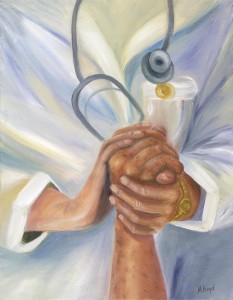
Doctors that caring for dying patients need more support. This reality, that initially could seem banal, it’s confirmed by BMA, British Medical Association. BMA had explicitly required more attention regarding the support for doctors that caring dying patients, following a survey that revealed that one in five physicians feel they get sufficient assistance: 93.9% saying it has an emotional impact on them.
Doctor Zoe Greaves, the BMA’s medical ethics committee deputy chair, said:
Although doctors are professionally trained to deal with death, the emotional toll from caring for patients at the end of their life should not be underestimated. Doctors will always remember their “first death”. BMA wanted to see the use of support services become normal practice.
More than a third (37.2%) of the 457 doctors who responded to the online poll said they cared for dying patients frequently or all the time. A similar proportion (34.6%) said they occasionally cared, with 28.2% saying they never did. Only 14.7% said they had accessed formal or informal support networks, either locally or nationally.
Here some extracts from the declarations released from the interviewed doctors:
I don’t think we spend time thinking about the emotional impact, so we bottle it up then burn out.
Just get on with it. There is no support.
Essentially I have no support, other than discussing with colleagues (medical and nursing) informally.
Where doctors had accessed support services offered by specialist palliative care units or staff, the response was positive, with 92% saying it met their needs.
One doctor told that in his first year on the job he was left alone to deal with a patient at the end of their life as the senior doctor was in theatre. The same family was unprepared to that improvise death.
I felt completely helpless, but knew I had a duty of care to that patient to make their death as good as possible. When the patient did pass away, I verified the death, but with no support. I was compassionate with the family who were crying and wailing – that’s the one thing I knew I could do. I felt upset afterwards. Later, the family brought me a touching thank you card – I was very surprised as I felt it was extremely undeserved. As doctors we deal with death frequently, but it doesn’t make it any easier. It is vital that we have the support, time and training necessary to get it right.
Source: TheGuardian.com
